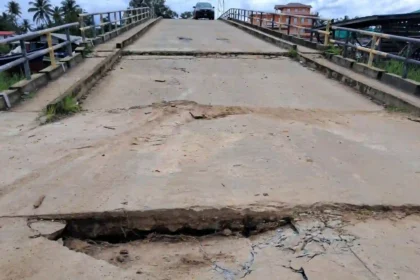The International Court of Justice (ICJ) has found itself involved in a global row related to issues such as climate change, climate justice and who should bear responsibility for polluting Planet Earth as the Prime Minister of Antigua and Barbuda, Gaston Browne, presented a strong case before the court’s legal brains in The Hague earlier in December.
In what has been termed the biggest climate case, the ICJ judges heard from representatives from more than 100 nations and organizations, including Browne, between December 2 and 13. The case saw an attempt by vulnerable nations to set up a tighter accountability framework to lay down clear international legal obligations for climate-related action.
The legal efforts were led by the Pacific island of Vanuatu. The aim is to get an advisory opinion from the ICJ, which though would not be binding, but the court’s position on countries’ obligation to respond to climate change could set a crucial precedent for further cases against polluters.
PM Browne, a vocal leader from the Caribbean against climate change who speaks on the matter on various international platforms, told the court that the rise in sea level, caused by “unchecked emissions”, has eroded coastlines and is devouring land which is vital to his island-nation.
Antigua and Barbuda, like many other nations in the Caribbean, is at the mercy of adverse forces of nature, like hurricanes. PM Gaston Browne presented a case for the plight of his country and others in the Caribbean Community to be legally addressed on the deadly outcomes of climate change.
Emphasising on the vulnerability of Small Island Developing States (SIDS) against climate change, the Antigua and Barbuda PM told the ICJ that his country stands with other vulnerable nations, particularly other fellow small island countries. He said together, they endured the worst crisis they did not create. He added that they also stand today with millions of people globally who are expecting the court to guide them on a path ahead, to give clarity, justice, and hope.
PM Browne also said that his country is a small one on the frontline of a global climate emergency and the prevalent action has not addressed the crisis adequately, resulting in devastation for their lives. He also said that hurricanes also put burdens of debt on countries like Antigua and Barbuda and they find it extremely difficult to rebuild from scratch.
Pointing out that states should avoid causing harm to others under international law, he said global emissions were still rising and cautioned that crossing the threshold of 1.5 degrees Celsius would imperil the very existence of the SIDS countries. He called it the failure of the polluting countries to act.
In November, the Antigua and Barbuda prime minister gave a powerful speech on the challenge of climate change at the COP29 World Leaders Summit held in Baku, Azerbaijan. COP29 is the other name of the Conference of the Parties of the UNFCCC (United Nations Framework Convention on Climate Change) which is the United Nations’s process for negotiating an agreement to limit the ill effects of climate change.
Stressing on urgent global action to protect nations that are vulnerable, Browne said countries such as Antigua and Barbuda face an existential threat despite not making much contribution to global emissions. He sought strong climate financing, just emissions-reduction targets, and greater accountability from nations held as major polluters.







